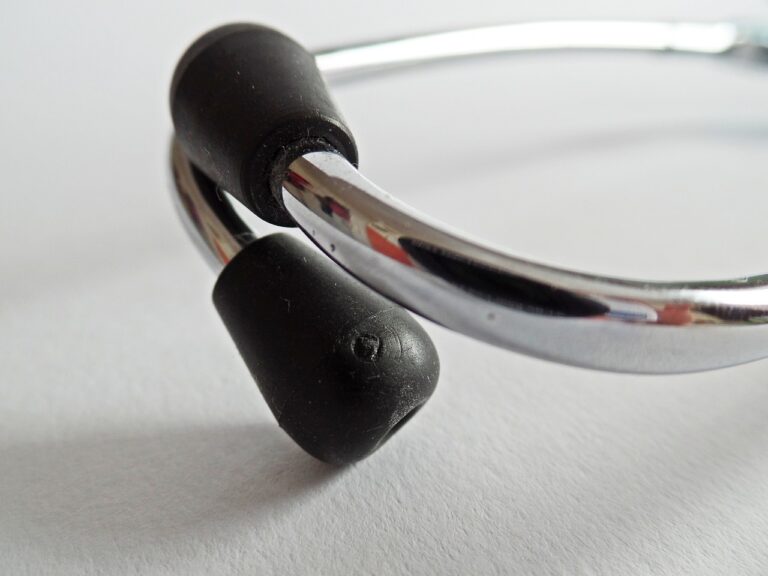Advances in Tinnitus Management
11xplay, tigerexch247 login, booki bet:Advances in Tinnitus Management
Living with tinnitus can be a challenging experience. The persistent ringing or buzzing in your ears can be distracting, frustrating, and even debilitating at times. However, there have been significant advances in tinnitus management over the years that offer hope and relief to those suffering from this condition. In this blog post, we’ll explore some of the latest advancements in tinnitus management and how they can help you find relief from the noise in your ears.
Understanding Tinnitus
Before we dive into the advancements in tinnitus management, let’s first understand what tinnitus is. Tinnitus is the perception of sound when no external sound is present. It can manifest as ringing, buzzing, humming, hissing, or roaring in the ears. Tinnitus can be temporary or chronic and can vary in intensity from mild to severe.
While the exact cause of tinnitus is not fully understood, it is often associated with damage to the auditory system, such as exposure to loud noises, aging, or certain medical conditions. Other factors, such as stress, anxiety, and depression, can also contribute to the onset or exacerbation of tinnitus.
Advancements in Tinnitus Management
Over the years, researchers and medical professionals have made significant strides in developing new strategies and treatments to help manage tinnitus. Here are some of the latest advancements in tinnitus management that can offer relief to those living with this condition:
1. Sound Therapy: Sound therapy involves using external sounds to mask or distract from the tinnitus sound. This can be achieved through wearable devices that emit white noise, nature sounds, or music to help reduce the perception of tinnitus. Sound therapy can help retrain the brain to ignore the tinnitus sound and improve overall comfort levels.
2. Cognitive Behavioral Therapy (CBT): CBT is a type of psychotherapy that helps individuals identify and change negative thought patterns and behaviors. For tinnitus sufferers, CBT can be effective in addressing the emotional distress and anxiety often associated with the condition. By learning coping strategies and relaxation techniques, individuals can better manage their tinnitus symptoms.
3. Neuromodulation: Neuromodulation is a non-invasive technique that involves stimulating the nervous system to reduce tinnitus symptoms. Transcranial magnetic stimulation (TMS) and transcutaneous vagus nerve stimulation (tVNS) are two forms of neuromodulation that have shown promise in reducing tinnitus severity and improving quality of life.
4. Mindfulness and Meditation: Mindfulness and meditation practices can help individuals with tinnitus cultivate a sense of inner calm and relaxation. By focusing on the present moment and engaging in deep breathing exercises, individuals can reduce stress and anxiety levels, which can in turn alleviate tinnitus symptoms.
5. Hearing Aids: For individuals with hearing loss and tinnitus, wearing hearing aids can be beneficial in improving overall hearing and reducing the perception of tinnitus. Hearing aids amplify external sounds, making it easier for individuals to hear and communicate in noisy environments while also providing relief from tinnitus.
6. Medications: In some cases, medications such as antidepressants, anti-anxiety drugs, or anticonvulsants may be prescribed to help manage tinnitus symptoms. These medications can help alleviate the emotional distress and anxiety associated with tinnitus, making it easier for individuals to cope with their condition.
FAQs
Q: Can tinnitus be cured?
A: While there is currently no cure for tinnitus, there are many management strategies and treatments available to help individuals find relief from their symptoms.
Q: Is tinnitus a sign of hearing loss?
A: Tinnitus is often associated with hearing loss, but it can also occur in individuals with normal hearing. It’s important to have a thorough hearing evaluation to determine the underlying cause of tinnitus.
Q: How can I prevent tinnitus?
A: To reduce your risk of developing tinnitus, it’s important to protect your hearing by avoiding loud noises, wearing ear protection when exposed to loud environments, and maintaining overall ear health.
In conclusion, tinnitus can be a challenging condition to live with, but with the latest advancements in tinnitus management, individuals can find relief and improve their quality of life. By exploring sound therapy, cognitive behavioral therapy, neuromodulation, mindfulness practices, hearing aids, and medications, individuals can create a personalized treatment plan that addresses their unique needs and preferences. If you or someone you know is struggling with tinnitus, be sure to consult with a hearing healthcare professional to explore the options available for managing this condition.







